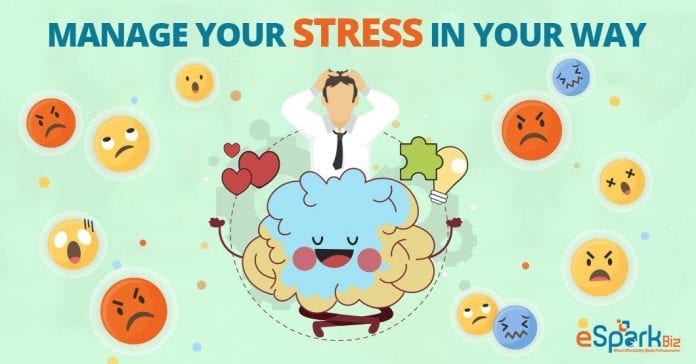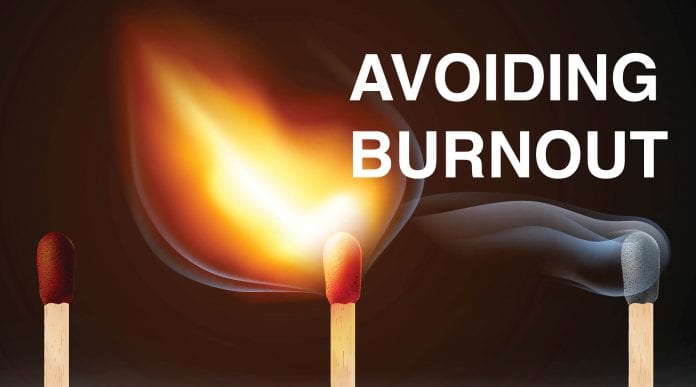It’s late at night and the last thing you want to do in the morning is go to work. You used to love going at work, but things have changed. No project at work seems appealing to you, and you think that it’s time to get a new job.
But is your current job less exciting or you’re going through job burnout?

What’s the briefest definition?
Burnout is a process related to the job, and it’s debilitating. It doesn’t go on its own, and you need to find the most effective treatment to deal with it.
Irritability, lack of passion, depression, and inability to enjoy anything at work are some of the most common symptoms related to job burnout. Exhaustion that doesn’t go away, avoiding people, and not finding any joy in your hobbies are also amongst the symptoms.
With job burnout being recognized as a health condition only recently, it makes sense that there are plenty of misbeliefs around it too.
What are the most common myths related to work burnout?
When you want to clear things out on something, it’s also essential that you get an understanding of the misbeliefs on that specific matter. Here are five of the widely spread myths on this issue:
1. Job burnout means you no longer manage stress in your life

Many people going through stress in your life feel like they’re under pressure all the time. Feeling exhausted all the time, you deal with negative emotions all the time. Soon enough, you’ve become the “best” inner critic and doubt everything that you do. There are many ways to deal with stress, and mind-body therapies have proved their efficiency for many.
Knowing your impact is one way to deal with stress. People feeling that their job is stressful and challenging may develop burnout sooner or later. Nevertheless, people tend to present a high rate of burnout only when they no longer feel productive at work.
Helping other people also helps when managing stress. Psychologists have noticed that when we’re stressed, our brain releases chemicals that determine us to reach out for other people. “Tend and befriend” is the name for it, and people going through it will try to help other people. It seems that burnout is raising giving tendencies as it triggers this kind of answer.
2. You can only heal if you’re making a life change
Many of the people going through burnout fear that they will have to leave their jobs altogether. Some choose to take some time off and find healing in alternative healing centers located in unusual locations, such as this one. Truth be told, the variety of healing methods (meditation, yoga, tai chi, HBOT therapy, floatation therapy, and many more) help people get a new understanding of their life. It can give a fresh start to their life and find the reasons behind their burnout.

But a fresh start for your life doesn’t necessarily mean changing your job. You can also try job crafting, which means that you’re reshaping your role for fitting better. While you’re enjoying your recovery at an alternative healing center away from home, you can find new ways to expand your strengths, values, and passions. You learn new ways to communicate with people and even change your perspective on life and job.
3. A vacation is a solution
A vacation may bring some comfort for a short amount of time, but it’s not going to change the way you feel about your job. It’s one thing when you’re taking a vacation to enroll in an alternative healing center somewhere in Mexico, and it’s another thing when you stay at home for a week.
There are day-to-day stress and burnout, and quick fixes don’t solve burnout. In all fairness, it’s going to help you take a week off. But it will never be as efficient as doing more than relaxing while you’re on vacation.
4. It always involves depression

Burnout and depression are connected, but scientists still try to comprehend the dynamic of the relationship. The most popular myth belief is that 20% of cases can be explained by depression and the other way around; it means that there are other aspects causing the rest of 80% of the cases. For some, this is the gateway illness as it opens a door for other problems. Some people with job burnout may experience panic attacks and not depression. There’s also the category of people experiencing physical conditions. One study revealed that women with high levels of burnout present various inflammation biomarkers, but it wasn’t the same for depressive symptoms. For men, the results were the opposite.
5. Keeping it a secret is the best way to deal with it?
It’s a common, yet their co-workers notice irrational misbelief as people with burnout. The cynicism, exhaustion, the poor performances are only some of the many signs to see. People start to miss out on work or get sick more often, and they lose patience with their colleagues. Many fail to accomplish their daily jobs and spend more time taking breaks. Whatever the symptoms, this is something that you notice, so hiding it isn’t quite possible.
Once you’ve admitted that you’re dealing with it, don’t be afraid to look into healing treatments. People are more open to talk about it than you think, and you should give yourself time for healing.









